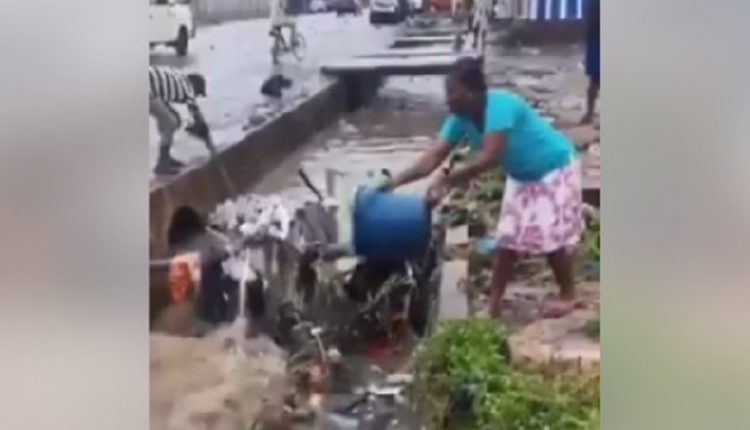“The rains cannot be blamed for floods: only man can be blamed for not managing his environment” Amit Kalantri.
As the rainy season approaches, Ghana stands at a critical juncture where concerted efforts are needed to prevent the devastating consequences of floods. Year after year, communities across the nation grapple with inundation, property damage, and health hazards stemming from clogged drains and irresponsible waste disposal practices. It’s time for a collective awakening, a shift in attitudes and behaviors, to safeguard our homes, streets, and health during the wet season.
One of the primary challenges contributing to flood risks in Ghana is the rampant disposal of garbage into drains and gutters. These vital waterways, meant to channel rainwater safely away from populated areas, are often choked with plastic bags, bottles, and other debris. As the rains intensifies, these blockages lead to overflow, flooding streets and homes, and exacerbating the spread of waterborne diseases.
Moreover, there exists a disturbing trend where some individuals resort to emptying their cesspit tanks directly into drains, evading the cost of proper evacuation. This reckless act not only endangers public health but also compromises the integrity of the drainage system, inviting catastrophic consequences for entire communities.
It’s imperative for us, as a people, to recognize the gravity of these actions and their repercussions. We cannot afford to turn a blind eye to the imminent threat posed by floods. Instead, we must adopt a proactive stance, embracing responsible practices that mitigate risks and protect our well-being.
First and foremost, proper waste management is non-negotiable. Every citizen must take ownership of their waste, disposing of it in designated bins or collection points. Municipal authorities should intensify waste collection efforts, ensuring timely and efficient removal of refuse from residential areas. Additionally, public awareness campaigns should emphasize the importance of recycling and reducing single-use plastics, thereby minimizing the volume of waste entering our drainage systems.
Furthermore, stringent enforcement of regulations is essential to deter unlawful practices such as illegal waste dumping and cesspit tank discharge. Offenders must face consequences commensurate with the severity of their actions, sending a clear message that such behavior will not be tolerated.
Education plays a pivotal role in shaping attitudes and fostering a culture of environmental stewardship. Schools, community groups, and media outlets should collaborate to educate the populace on the significance of preserving our natural resources and safeguarding against floods. By instilling a sense of responsibility and accountability from an early age, we can cultivate habits that endure beyond the confines of the rainy season.
Innovative solutions also hold promise in our quest for flood resilience. Green infrastructure initiatives, such as the implementation of permeable pavements and rain gardens, can help absorb excess water and alleviate pressure on drainage systems. Furthermore, investments in comprehensive urban planning and infrastructure upgrades are essential for enhancing flood resilience in vulnerable areas.
As we stand on the brink of another rainy season, let us heed the call to action, engaging in proper waste disposal methods, segregating waste appropriately, punishing those doing otherwise and inculcation in children the right attitude towards a much safer environment for quality life and increased life expectancy rates.
Let us commit to a future where floods are no longer a recurrent nightmare, but a distant memory. Together, we have the power to shape our destiny, to build a Ghana where every citizen can thrive in safety and prosperity, come rain or shine.
BY: MABEL DELASSIE AWUKU


Comments are closed.